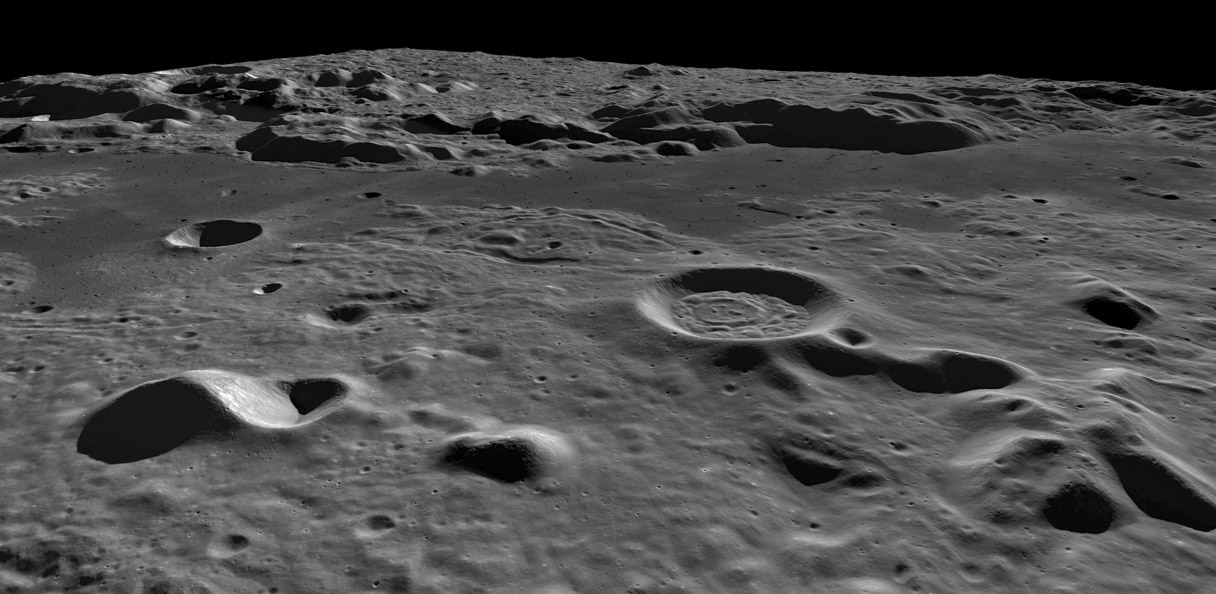Difference between revisions of "September 18, 2014"
| Line 16: | Line 16: | ||
<p><b>Tomorrow's LPOD:</b> [[September 19, 2014|Where in the World?]] </p> | <p><b>Tomorrow's LPOD:</b> [[September 19, 2014|Where in the World?]] </p> | ||
<hr /> | <hr /> | ||
| + | {{wiki/ArticleFooter}} | ||
Revision as of 17:46, 7 February 2015
Looking East

image from Kaguya Image Gallery, copyright JAXA/Selene
An unfamiliar scene with elements of familiarity. Where on the Moon do we see a stripe of mare? And where does a range of mountains border a sliver of lava? Really only two places, inside the Cordillera rim and the Outer Rook rim of the Orientale Basin. Lacus Veris is the string of dark mare seen here with the Outer Rook Mountains casting short shadows near the top of this oblique scene constructed from Kaguya Terrain Camera images and derived digital elevation models. It appears that a low dome or swell is on the lacus between the large crater and the Rook Mountains. It is remarkable to detect this dome because volcanic features (domes, sinuous rilles and dark halo craters) are rare to non-existent in Orientale lavas and on farside maria in general. The most conspicuous peculiar feature is the 14 km wide crater Kopff C at center right. This crater has a narrow inner ring with hills between the ring and crater wall. This feature looks very much like the more famous one, Gruithuisen K, although it is less symmetrical. Finally, at front left is a crater on the edge of a mountain. This does seem to be just a case of a chance impact near a pre-existing feature.
Chuck Wood
This is a replay of the LPOD of Dec 24, 2009.
Related Links
Rükl plates 50 and VII.
Yesterday's LPOD: Another Pyroclastic ?
Tomorrow's LPOD: Where in the World?
COMMENTS?
Register, Log in, and join in the comments.



